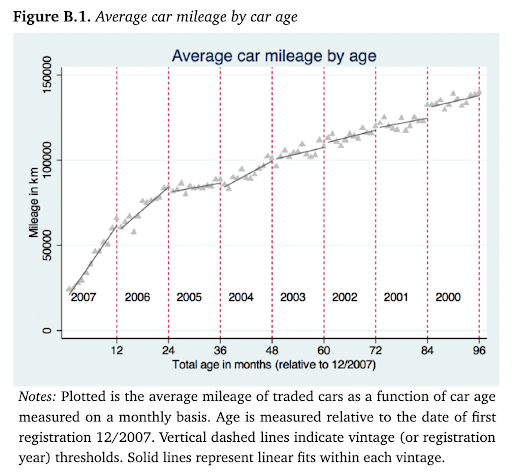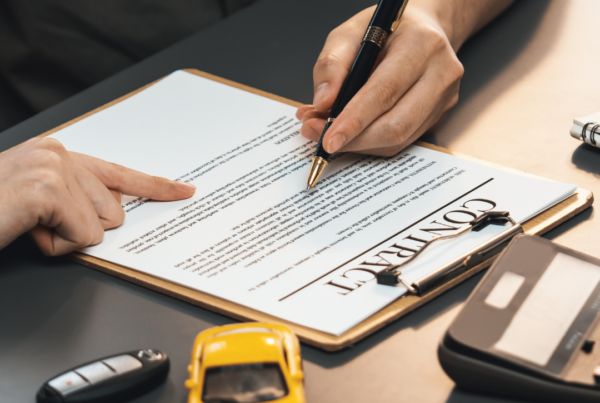Buying a used car can save you thousands of dollars, but it can also feel like a gamble. Did you know that 1 in 3 used cars has a hidden issue? That’s why it’s crucial to do your homework before signing on the dotted line. In this blog, we’ll walk you through 10 things to check before buying a used car, so you can avoid costly mistakes and find a reliable ride. Whether you’re a first-time buyer or a seasoned pro, these tips will help you make a smart decision. Let’s dive in!

1. Vehicle History Report
A vehicle history report is your first line of defense. It reveals critical information like:
- Accident history.
- Odometer readings.
- Title status (clean, salvage, or rebuilt).
Where to Get One
Use services like Carfax or AutoCheck to generate a report.
Pro Tip: Always ask for the VIN (Vehicle Identification Number) to run your own report. Never rely solely on what the seller provides.
2. Exterior Condition
Inspect the car’s exterior for signs of damage or wear:
- Rust: Check under the car and around the wheel wells.
- Paint: Look for mismatched colors, which could indicate repairs.
- Tires: Uneven wear may suggest alignment issues.
Action Step: Walk around the car in daylight for the best view. Examine all panels and trims closely.
3. Interior Condition
The inside of the car tells a story too. Check for:
- Seat Wear: Excessive wear could mean high mileage.
- Odors: Musty smells may indicate water damage.
- Electronics: Test the AC, radio, windows, and lights to ensure everything is functional.
Pro Tip: Bring a flashlight to check under seats and in corners for hidden damage or debris.
4. Engine Health
Pop the hood and inspect the engine for the following:
- Leaks: Look for oil, coolant, or transmission fluid stains.
- Belts and Hoses: Check for cracks or wear.
- Battery: Corrosion on terminals is a red flag.
Action Step: Start the car and listen for unusual noises like knocking or squealing. A smooth idle and clean start are good signs of engine health.
5. Test Drive
A test drive is non-negotiable. Pay attention to:
- Steering: Does the car pull to one side?
- Brakes: Are they responsive or squeaky?
- Transmission: Smooth shifts or jerky movements?
Pro Tip: Drive on different road types (highway, city, hills) to test performance under various conditions.
6. Mileage
Mileage matters, but it’s not the only factor to consider.
- Average Mileage: 12,000–15,000 miles per year is typical.
- Service Records: Regular maintenance can offset high mileage.
Example: A 5-year-old car with 60,000 miles is reasonable if well-maintained.
7. Maintenance Records
Ask for maintenance records to see how well the car was cared for. Look for:
- Oil changes.
- Brake replacements.
- Major repairs.
Pro Tip: A well-documented history is a sign of a responsible owner. Beware of gaps in the service record.
8. Frame and Undercarriage
Check for signs of frame damage or rust underneath the car:
- Alignment: Misaligned panels could mean past accidents.
- Rust: Surface rust is common, but holes are a dealbreaker.
Action Step: If you’re unsure, have a mechanic inspect it for you.
9. Title and Ownership
Verify the car’s legal status:
- Clean Title: No major issues.
- Salvage Title: Repaired after significant damage.
- Lien: Ensure there’s no outstanding loan on the car.
Where to Check: Your local DMV or online title search services.
10. Get a Pre-Purchase Inspection
Even if everything looks good, have a professional mechanic inspect the car. They can:
- Identify hidden issues.
- Estimate repair costs.
- Give you peace of mind.
Pro Tip: Use trusted networks like Total Car Loans to find a reliable mechanic for the inspection.

FAQs: Buying a Used Car
1. What should I look for in a vehicle history report?
Look for accident history, odometer tampering, and the title status (clean, salvage, or rebuilt). These are red flags for hidden issues.
2. How do I know if a car has been in an accident?
Check for mismatched paint, misaligned panels, or gaps between body parts. The vehicle history report may also provide this information.
3. Is it safe to buy a car with a salvage title?
Salvage titles are risky as they indicate the car was damaged significantly. While repairs may restore functionality, resale value is often lower, and hidden issues may remain.
4. How much should I budget for a pre-purchase inspection?
A professional inspection typically costs between $100–$200. It’s a worthwhile investment to avoid costly repairs later.
5. Can I negotiate the price of a used car?
Yes! Use information from the vehicle history report, maintenance records, and pre-purchase inspection to justify your offer.
6. What are the red flags when buying a used car from a private seller?
Look out for incomplete paperwork, refusal to allow a pre-purchase inspection, and signs of rushed or evasive behavior from the seller.
Ready to Buy Your Next Car?
Buying a used car doesn’t have to be stressful. By following these 10 essential checks and keeping the FAQs in mind, you can avoid common pitfalls and find a reliable vehicle that fits your budget. Remember, a little effort upfront can save you thousands of dollars—and headaches—down the road.
Get started today and contact Total Car Loans for personalized assistance with your used car purchase. Drive away with confidence!




